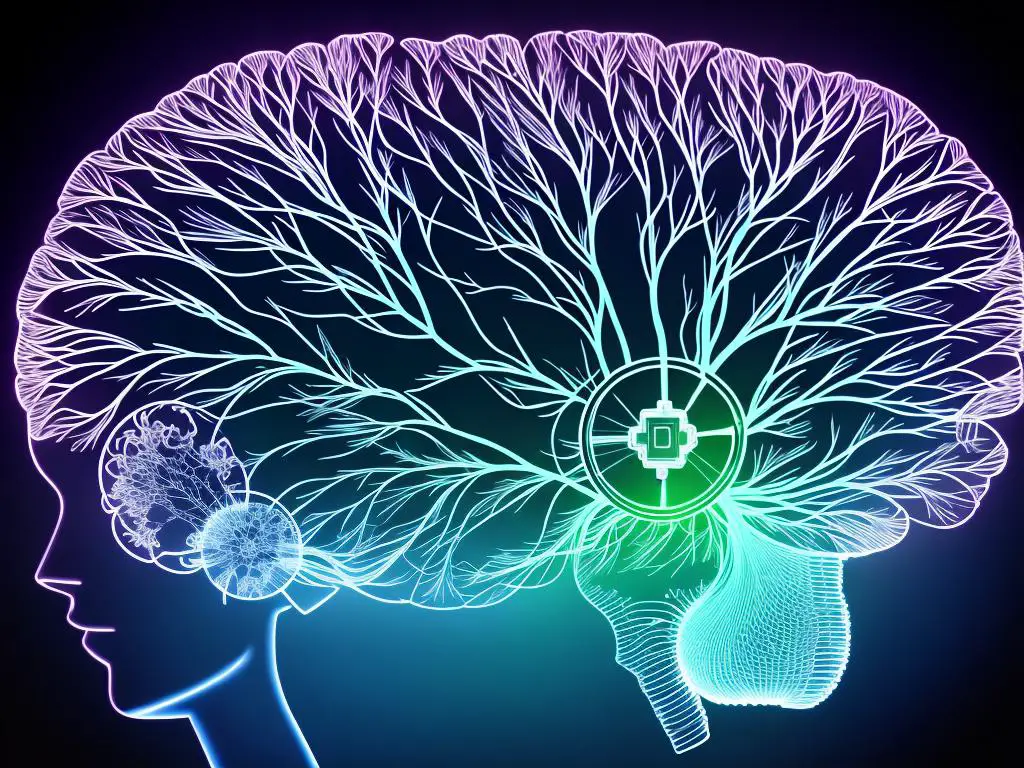In the ever-evolving technological landscape, Artificial Intelligence (AI) is increasingly becoming a transformative force, touching every facet of our lives. From targeted advertisements to predictive text, AI is making waves in diverse industries, one of which is content generation and arbitration.
AgentGPT, a model developed by OpenAI, is at the forefront of this AI revolution, offering a remarkable platform that proves to be a game-changer. This discussion will shed light on how AI, and more specifically, AgentGPT, is not just redefining the intricacies of content generation, but also how it is being harnessed to mediate content arbitration.
Furthermore, the intent is to unpack the critical ethical considerations and biases involved in the use of AI for content arbitration, as well as projecting the potential future of AI in this crucial sphere.
Basics of AI and AgentGPT
Table of Contents
- 1 Basics of AI and AgentGPT
- 2 Role of AI in Content Generation
- 3 AI-mediated Content arbitration
- 3.1 The Intricacies of AI-Driven Content Arbitration
- 3.2 The Advantages of AI Content Arbitration
- 3.3 Real-World Cases Utilizing AI in Content Moderation
- 3.4 AI’s Role in Shaping Society
- 3.5 The Balance Between AI and Human Moderation
- 3.6 Artificial Intelligence: An Essential Instrument for Content Moderation
- 4 Ethical and Bias Considerations
- 5 Future of AI Content Arbitration
Understanding Artificial Intelligence
Artificial Intelligence, often referred to as AI, is a system or machine that exhibits human-like intelligence. This advanced technology is designed to learn, process information, and make decisions in ways that resemble human behavior. A hallmark of AI is its ability to improve its performance over time, learning from mistakes and adapting itself to optimize outcomes.
AI serves numerous uses across industries, from healthcare, where it assists in diagnosing diseases and developing treatments, to finance, where it aids in fraud detection and risk assessment. In transportation, AI powers autonomous vehicles, while in marketing, it helps in customer segmentation and personalized advertising.
Introduction to AgentGPT
AgentGPT is a novel AI model developed by OpenAI, an AI research laboratory. It is part of the transformer-based language models, such as GPT-3, but with a more specific purpose. While it’s a text generation system, similar to its peers, its main difference resides in its training: It has been trained with a reinforcement learning from human feedback approach, making it more effective in generating relevant content.
Essentially, AgentGPT combines the capabilities of a language model with the predictability of artificial intelligence, making it an interactive tool that can generate text, assist in decision-making processes, write content, and even carry out web research.
An Overview of AI Content Arbitration: The Case of AgentGPT
AI content arbitration encompasses the utilization of AI systems, such as AgentGPT, to produce, assess, and modulate digital content. These operations could range from responding to user inquiries, compiling blog articles, to formulating social media posts, and many more.
Possessed with the capability to adapt and generate responses, AgentGPT plays a significant part in AI content arbitration. The advanced mechanisms of reinforcement learning allow AgentGPT to create premium, human-like text that resonates with the preset tone and style. Moreover, AgentGPT’s ability to learn from feedback and progressively enhance its performance sets it apart from others.
Another distinct feature of AgentGPT is its incorporated moderation system, designed to deny particular forms of unsafe content or user instructions. This measure is not only indicative of AgentGPT as a content creator but also as its regulator, thereby underlining AI’s evolving role in shaping our digital content which complies with safety guidelines.
Although AI content arbitration offers numerous advantages, it’s not without its share of challenges. These often include instances of refusal false positives and negatives, where the system wrongly dismisses a safe command or sanctions an unsafe one. To tackle these issues, OpenAI is putting in concerted efforts and actively seeks users’ feedback towards reducing occurrences of such glitches in the future.
As AI becomes increasingly dominant in the realm of digital content, addressing these concerns becomes crucial. Therefore, when employing AI content arbitration platforms like AgentGPT, it is essential to comprehend its potential and constraints, which further necessitates its continuous monitoring and upgrades.

Role of AI in Content Generation
Understanding the Impact of AI in Content Generation
The advent of Artificial Intelligence (AI) has radically revolutionized digital content generation, with pioneers like AgentGPT leading this change. Developed by OpenAI, a frontrunner in AI technologies, AgentGPT serves as a language model. Its specialty lies in applying machine learning to compose text that remarkably resembles human language, as per the inputs it receives.
AgentGPT in Auto Drafting Content
One of the significant benefits of using AI for content generation is its ability to auto-draft text. AgentGPT, for instance, can generate vast amounts of text in a matter of seconds – a task that would take much longer if done manually. It can be given a topic, a start sentence, or other prompts and will generate a cohesive, informative, and engaging text based on these inputs. For example, journalists are using this AI tool to draft news articles, freeing them from the initial creation of the text and allowing them to focus more on refining the content, verifying facts, and adding their unique journalistic insights.
Brainstorming with AgentGPT
Where AI truly shines in content generation is in brainstorming. AgentGPT offers a unique approach to ideation, changing the way creators come up with new pieces of content. Since AI doesn’t think or operate like a human brain, it can generate out-of-the-box ideas, providing fresh perspectives instead of the usual think tank suggestions. Companies can provide a few keywords or a brief summary, and AgentGPT will generate various potential headlines or content snippets, giving content creators a wider variety of ideas and angles to explore.
Content Suggestion by AgentGPT
AI systems like AgentGPT also work excellently in suggesting content. These systems analyze data trends, user behaviors, and popular topics in real-time, enabling them to provide highly relevant content suggestions. For instance, marketing teams can use AI to understand what kind of content generates the most engagement on social platforms, and suggest similar content themes or topics.
AI in Content Generation and Its Practical Use Cases
Let us consider a few real-world examples that demonstrate the effective implementation of Artificial Intelligence (AI) in content generation. A classic instance is the renowned news agency, “The Associated Press”, which leverages AI’s capabilities to produce financial reports. This progressive use of AI technology has significantly amplified their report production rate, thereby enabling journalists to dedicate their time to more intricate stories. In a similar vein, Netflix employs AI to offer personalized content suggestions to its subscribers.
On a more micro level, AgentGPT, an AI model, has found its application in bolstering customer service operations. Numerous companies deploy this technology to formulate templated responses, accelerating the process of addressing routine customer inquiries. This ensures that their service representatives can prioritize more convoluted or sensitive customer cases. This particular application shines a light on AI’s capacity not simply for improving operational efficiency but also for enriching customer experience via prompt and precise content production.

AI-mediated Content arbitration
The Intricacies of AI-Driven Content Arbitration
Moving onward to the realm of AI-driven content arbitration, which is a procedure where AI is harnessed to mediate and resolve disagreements over the suitability or legality of certain content types. This process spans an array of content categories, encompassing text and visuals, and has relevance to social media posts, comments, customer reviews, and online submissions. AI’s role in content arbitration signifies its broader capabilities in content management and lawful conduct enforcement on digital platforms.
The Advantages of AI Content Arbitration
AI content arbitration comes with a number of potential advantages. Not only can it help arbitrate content rapidly and in real-time, but it can also provide impartial results based on data and pre-set criteria.
Online platforms presently face a crisis of managing offensive, inappropriate, or illegal content. Humans can be slow and inconsistent when it comes to content moderation. AI, however, can scan, process, and flag problematic content much more efficiently and eliminate or reduce error rates. Furthermore, AI has the ability to ‘learn’ through machine learning algorithms, thus enhancing accuracy over time.
Real-World Cases Utilizing AI in Content Moderation
Real-world applications of AI in content moderation are broad but can be seen prominently on online social platforms. To manage the constant flood of user-generated content, companies like Facebook and YouTube have integrated AI technologies to detect and remove offensive content.
YouTube’s AI systems, for example, have been developed to identify misleading information or harmful content and take it down rapidly. Between July and September 2020, it removed over 1.8 million channels and majority of this removal was credited to its AI systems.
Another good example is OpenAI’s AgentGPT – it’s a language model that uses AI to filter, understand, and generate language-based tasks. Although not specifically designed for content arbitration, AgentGPT demonstrates how advanced AI has become in understanding and managing content, thereby previewing its potential for AI content arbitration.
AI’s Role in Shaping Society
AI has taken on a vital role in fostering healthier online communities by swiftly and accurately identifying and eradicating harmful content. It has become a key player in content arbitration, allowing for efficient mitigation of disputes. Nevertheless, it’s just the beginning, and the rising abilities of AI, like AgentGPT, show promising potential for further enhancement of content arbitration.
The Balance Between AI and Human Moderation
Although AI is incredibly potent in the area of content arbitration, it does have limitations. AI can potentially have blind spots due to algorithmic biases or errors in function. Therefore, a blend of human and AI moderation may form the best approach. This hybrid model ensures that we get to benefit from the efficiency and speed of the AI while still having the ability to operate with the nuanced understanding and interpretive flexibility that a human can provide.
Artificial Intelligence: An Essential Instrument for Content Moderation
In the ever-evolving domain of technology, digital content is on an exponential rise. As such, it has become crucial to integrate AI for online content moderation and arbitration. Anticipated progressions in AI, such as the likes of AgentGPT and similar models, are expected to steadily develop and enhance their arbitration competence, allowing the process to be increasingly frictionless.

Photo by samich_18 on Unsplash
Ethical and Bias Considerations
Deciphering AI Content Arbitration and Addressing its Bias
Artificial Intelligence is key in current digital content arbitration, as exemplified by platforms like AgentGPT. AI significantly aids in analysing immense volumes of data, discerning patterns, and executing decisions based on these patterns. Nevertheless, AI still grapples with certain challenges. Among the most debated is the potential bias that could be inherently present in these AI systems.
Sources of Bias in AI
Bias in AI algorithms arises from the data they’re trained on. If this data contains inherent biases, they can be learned and propagated by the AI system. For instance, if an AI system like AgentGPT is trained predominantly on material written by a particular demographic, the system may inadvertently prioritize that demographic’s views when arbitrating content. Bias can also creep in during algorithm design. If developers unintentionally incorporate their biases when creating the decision-making algorithms, the AI will reflect these biases in its actions.
Accidental Replication of Human Biases by AI
AI systems also have the potential to amplify existing human biases. AgentGPT, like other AI platforms, relies on massive amounts of data, usually drawn from human interactions or writings, to learn and make informed decisions. Since this data is often imprinted with human biases, an unsupervised AI can inadvertently learn and replicate these biases. For example, if biases related to gender, race or ideology are prevalent in the training material, the AI could adopt these biases, leading to biased content arbitration.
Current Debates Regarding AI and Bias
There is ongoing debate regarding the role of AI in perpetuating biases. Some argue that the problem lies not with AI itself but with the bias in data used for training. Others maintain that the algorithms, when left unsupervised, can develop biases over time, regardless of the initial training data. These debates highlight the necessity for stringent control mechanisms to regulate AI behavior.
Mitigating Bias in AI Content Arbitration
Several measures can be implemented to avoid such biases. First, it’s crucial to diversify the data on which AI is trained; this way, the AI can represent a broader spectrum of views and fairness in outcomes. This includes including varied demographics and perspectives in the training data. Second, regularly auditing the AI’s performance and fine-tuning it to correct any discovered bias is essential. Finally, transparency about AI’s decision-making processes can help in identifying biased decisions and remedying them. Although not always easy to implement due to complex algorithms, transparency can ensure that any biases are recognized and addressed promptly.
AgentGPT, a product of OpenAI, is designed with great emphasis on avoiding bias in all aspects of its operations. The goal is to maintain a strict ethical balance. This is made possible by auditing model outputs and employing reinforcement learning drawn from human feedback. By doing so, harmful, unnecessary biases in the AI’s reactions to varying inputs are systematically reduced via frequent alterations and enhancements. Nevertheless, achieving absolute neutrality in AI is an ongoing challenge. Hence, intensive research is being conducted to improve and ensure fairness and impartiality in these complex systems.

Future of AI Content Arbitration
AI Content Arbitration powered by AgentGPT
Artificial intelligence is experiencing rapid growth across multiple sectors, a trend evidenced by the rise in AI content arbitration. A notable example of this is the deployment of OpenAI’s AgentGPT in moderating content. Mentored by language models, AgentGPT is instrumental in determining, classifying, and ruling on diverse content. Its relevance is especially underscored in the world of online communities and social media platforms, where it helps cultivate an environment that promotes respect and positivity.
Technological Advancements Influencing Adoption
The development and refinement of machine learning algorithms are critical driving forces behind AI content arbitration. These algorithms enable AI models like AgentGPT to understand and analyze text and other forms of content. These advancements are gradually increasing the AI’s accuracy in flagging inappropriate or harmful content.
The rise of big data also acts as a catalyst for the growth of AI content arbitration. Large datasets provide the needed conditions for training and improving the accuracy of AI models. AI can now learn from vast volumes of content, thereby improving its ability to identify different types of harmful or inappropriate content.
Barriers Influencing AI Content Arbitration Adoption
Despite the significant potential and advancements, there are still several barriers to AI content arbitration adoption. Firstly, there are concerns about AI interpreting the content’s context, sarcasm, double entendre, and other nuances. While human moderators can understand these subtleties, an AI might misinterpret them, leading to incorrect arbitration decisions.
There are also legal and ethical concerns. AI content arbitration can tread the thin line between content moderation and censorship. How AI is programmed to implement content arbitration can raise sensitive issues around freedom of speech and information.
AI Content Arbitration’s Impact on Various Industries
The impact of AI content arbitration like AgentGPT is evident across several industries. In the media industry, for instance, it can be used to moderate comments on news websites, preventing hate speech, and promoting healthy conversations. It can also help manage user-generated content in online forums, social media platforms, and other digital spaces, a task that can be overwhelming for human moderators due to the volume and speed of content creation.
In the advertising industry, AI content arbitration can help ensure that offensive or inappropriate content doesn’t appear alongside brand advertisements. It can help brands maintain their reputation and prevent potential damage from misplaced ads.
In education, AI content arbitration offers potential for maintaining a positive and respectful learning environment. It can monitor online discussions and platforms where students share ideas and collaborate on projects, identifying instances of bullying, plagiarism, and other breaches of the conduct code.
While we are still in the early stages of AI content arbitration adoption, the potential applications and benefits are promising. As we continue to overcome the challenges and barriers, the future of AI content arbitration with AgentGPT and similar models could revolutionize many facets of our digital world.

As we traverse further into this contemporary era of Machine Learning and AI, it is evident that applications like AgentGPT will continue to play an increasingly significant role in content arbitration and beyond.
However, to burgeon fully and deliver its maximum potential, the constructive conversation around the ethical aspects and bias mitigation strategies must evolve simultaneously.
Just as we stand on the precipice of cutting-edge technological advancements, we must also tread the path of ethical responsibility to construct an unbiased and equitable AI-driven realm. This synergy of technology and ethics is what will pave the way for a future where AI-based content arbitration is standard, reliable, and universally accepted.

I’m Dave, a passionate advocate and follower of all things AI. I am captivated by the marvels of artificial intelligence and how it continues to revolutionize our world every single day.
My fascination extends across the entire AI spectrum, but I have a special place in my heart for AgentGPT and AutoGPT. I am consistently amazed by the power and versatility of these tools, and I believe they hold the key to transforming how we interact with information and each other.
As I continue my journey in the vast world of AI, I look forward to exploring the ever-evolving capabilities of these technologies and sharing my insights and learnings with all of you. So let’s dive deep into the realm of AI together, and discover the limitless possibilities it offers!
Interests: Artificial Intelligence, AgentGPT, AutoGPT, Machine Learning, Natural Language Processing, Deep Learning, Conversational AI.



